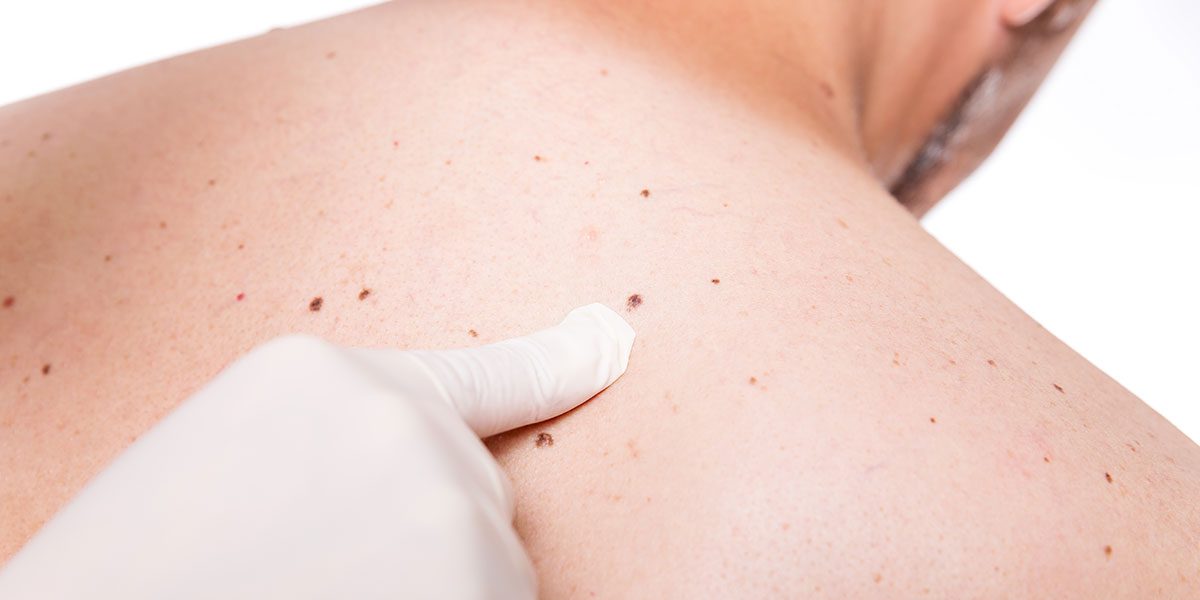Dermatology Services in Portland

Dermatology is an area of medicine that focuses on the health as well as diseases of the skin. The skin is the largest organ of the body and has many vital and important functions and the skin is our first line of defense. As board certified dermatologists, we are experts in all aspects of skin care and we specialize in the diagnosis, treatment and prevention of skin cancer and hundreds of skin diseases. Through extensive continuing education we actively stay current in the latest treatments of diseases of the skin, hair and nails. We feel it is a privilege to care for our patients and we feel honored in the trust our patients have placed in us.
Skin Care Consultation in Portland
What is important for good skin care and treatment? The skin care industry spends billions of dollar every year on both advertising skin care products and producing skin care products trying to convince you that each and everyone of their products is necessary to look younger. Are they necessary and what is the truth? Schedule a skin care consultation with Norris Dermatology today to find out what you really need for proper skin care.
Medical Dermatological Conditions We Treat
- Skin cancer screening and mole mapping
- Surgical treatment of skin cancer (melanoma, basal cell skin cancer and squamous cell skin cancer)
- Surgical treatment of benign growths such as cysts
- Contact dermatitis and skin allergy patch testing
- Occupational dermatology and work related skin diseases
- Atopic dermatitis
- Itchy skin
- Hand dermatitis and prevention
- Facial dermatitis and rashes associated with cosmetics
- Photo or sun related allergic dermatitis
- Psoriasis treatment including light therapy, systemic treatment as well as topical treatments with newer biologic medications
- Acne treatments: holistic approach including diet, medical and skin care along with peels, photodynamic therapy.
- Rosacea treatment: holistic approach with dietary, medical and laser treatment of the redness.
- Pigmentation of the skin including melasma, mask of pregnancy, sun spots (lentigenes)
- Vitiligo
- Wart treatments: cryotherapy (liquid nitrogen), laser treatment, cantherone, candida antigen injection
- Skin infections including staphylococcal, MRSA infections, fungal, infections of the nails on the hands and feet. Yeast and viral infections such as herpes simplex and shingles
- Medication/drug reactions
- Autoimmune diseases
- Hair conditions including thinning and shedding, alopecia areata, scarring hair loss. Male and female pattern hair loss.
- Wound care management for complicated chronic ulcers and slow healing wounds
-
Insurance Information
We accept most major commercial insurances:
- Aetna
- Cigna
- Health Net of Oregon
- Regence BC/BS
- Pacific Source
- United Health Care
DISCLAIMER: Please contact your insurance plan directly prior to scheduling to verify your network plan benefits for our provider.
Taking Care of Your Skin
Stay in the Shade or Use Sunscreen
 UV rays can cause skin cancer. UV rays can cause premature aging of the skin. Your first line of defense to fight skin cancer and premature aging will be to wear sun protective clothing, hats, and sunglasses. Remember to bring a hat and look for shade when you are doing outdoor activities. Apply sunscreen before you go out doors and then re-apply sunscreen frequently anywhere from every 30 minutes to every 2 hours depending on the activities and the intensity of the sun. Always re-apply sunscreen after swimming. Look for shade and avoid sun exposure during the most intense time of the day. Wear sunscreen when playing outside.
UV rays can cause skin cancer. UV rays can cause premature aging of the skin. Your first line of defense to fight skin cancer and premature aging will be to wear sun protective clothing, hats, and sunglasses. Remember to bring a hat and look for shade when you are doing outdoor activities. Apply sunscreen before you go out doors and then re-apply sunscreen frequently anywhere from every 30 minutes to every 2 hours depending on the activities and the intensity of the sun. Always re-apply sunscreen after swimming. Look for shade and avoid sun exposure during the most intense time of the day. Wear sunscreen when playing outside.
Re-apply your sunscreen frequently. Wear sunscreen on your face every day. How do you know your sunscreen is working? The quick answer is that you don’t get color when you are outdoors. If you have been out in the sun and you have not tanned, sunburned and you do not have an increase or darkening of your freckling then your sunscreen worked! Remember that sunburn, a tan and freckling are all a signs of sun damage. A good sunscreen will protect from all of these if it is applied correctly (meaning that you apply enough initially and then re-apply it frequently). Usually it is the combination of all the sun protection measures that helps prevent the skin from sun damage: shade, hats, covering with clothing and sunscreen!
Use Vitamin D
The Benefits of Vitamin D:
- Increases Calcium absorption by 30-40% to improve bone health and increasing the absorption of calcium
- Increases Phosphorous absorption by 80%.
- Decreases risk of osteoporosis.
- May decrease risk of cancer.
Sources of Vitamin D
Many foods have Vitamin D added like cheese, yogurt, milk and cereal. Oily fish like salmon & tuna are high in Vitamin D. Get your Vitamin D level checked and take Vitamin D if you are low.
Minimum Dosing for Vitamin D
- Child: 0-12months: 400 IU/d
- Child: 1-18: 600 IU/d
- Adult: 18-70: 600 IU/d
- Adult: > 71: 800 IU/day
Do Sunscreens Cause Vitamin D Deficiency?
In an article published in 1990 in a dermatology journal, JAAD, the final conclusion was sunscreen lowers vitamin D levels. This study has NOT been reproduced. Repeat studies have come up with different results. Repeat studies in 1995 (Archives of Dermatology) and again in 2002 showed sunscreen do not lead to vitamin D deficiency.
Is Oxybenzone Safe for the Use in Sunscreen?
There are concerns regarding the systemic absorption of Oxybenzone and its estrogenic and anti-androgen effects. Systemic absorption was confirmed but no significant difference in hormone levels were found between the treatment and the control group (J Invest. Dermatology 2004).
Tips for Tanning
Tanning is a form of sun damage whether you get natural sunlight or light from a tanning bed. Individuals who sunburn easily are at high risk of skin cancer and pre-mature aging and wrinkling. Sun-less tanners are safe. Dihydroxyacetone is a simple carbohydrate (sugar) that is safe to use. In addition there are products that give your skin temporary color such as, Sally Hansen – Air Brush Legs. This product gives instant, temporary color and it washes off with soap and water. There are several other companies that make “leg make up” which looks very natural.
Insurance Information
We accept most major commercial insurances:
- Aetna
- Cigna
- Health Net of Oregon
- Regence BC/BS
- Pacific Source
- United Health Care
- Providence Health Plan (Limited Network Participation)
DISCLAIMER: Please contact your insurance plan directly prior to scheduling to verify your network plan benefits for our provider.

